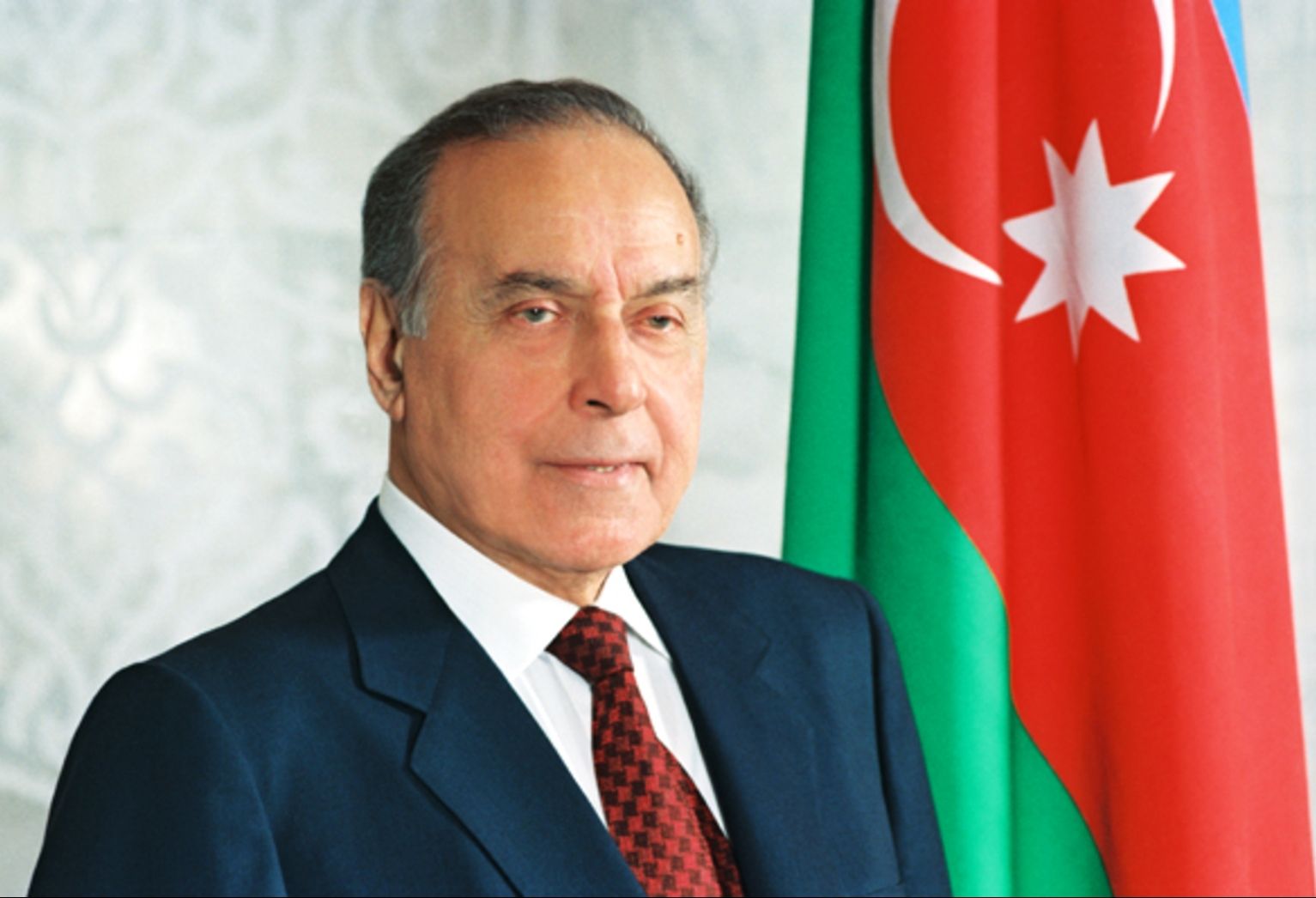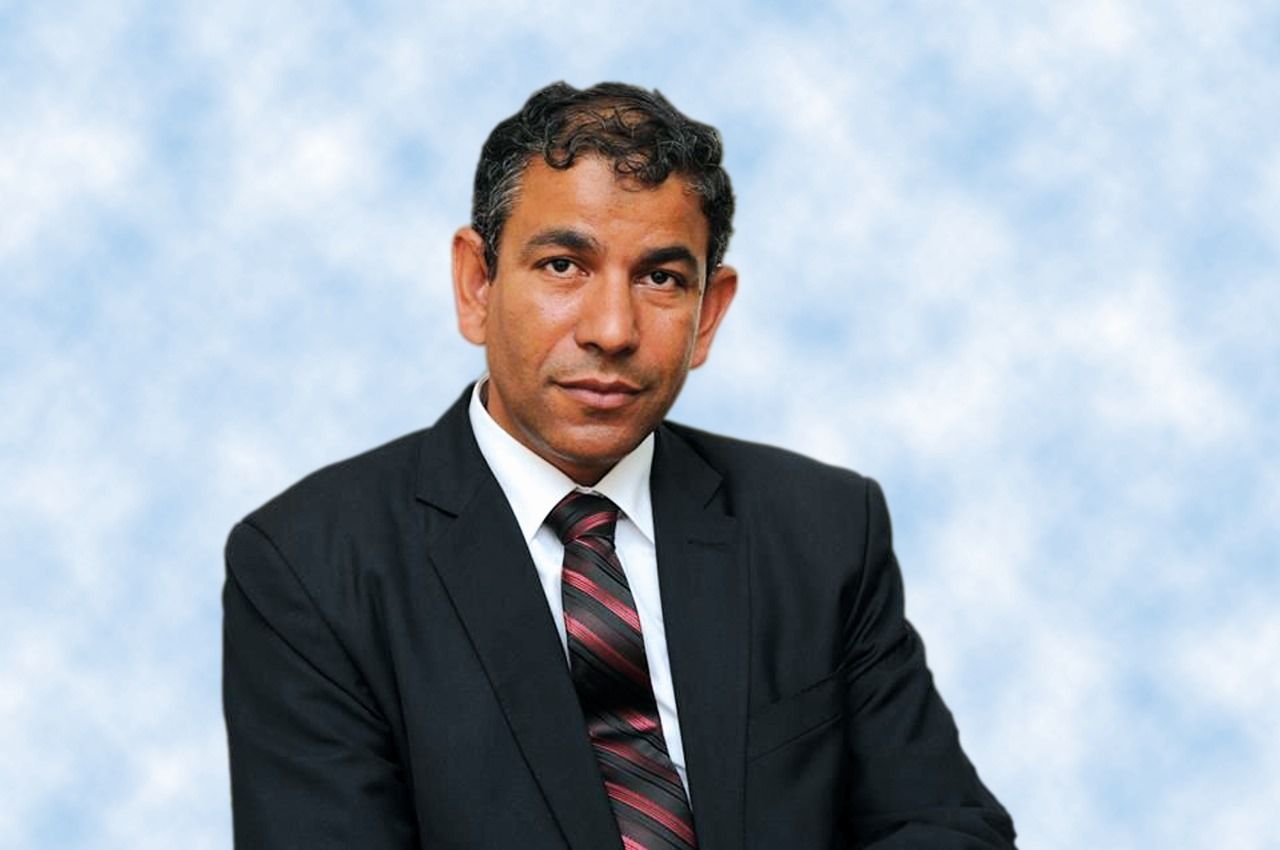National Leader's well-established relations with Arab & Islamic worlds: analysis by Egyptian researcher

A researcher specializing in Asian studies and the Turkic world, Ahmad Abdo Tarabeik wrote an article on Heydar Aliyev's activities in the Islamic and Arab world, Azernews reports.

Azerbaijan is linked to historical relations with the Arab and Islamic world, dating back to before the beginning of the Islamic conquest of Azerbaijan when groups of Arab merchants tried to reach this fertile country, which is characterized by abundant resources and beautiful nature.
They established commercial relations with its people, and some of them settled in Vihan, their traces still remain in Azerbaijan to this day, bearing witness to that historical period, represented by the presence of names for many cities and villages that bear Arabic names. In addition the names of people whose origins go back to those Arabs who settled this part of the land.
When the armies of the Islamic conquest came to Azerbaijan, these merchants were at the forefront of receiving them, as they played an important role during the operations of the Islamic conquest. They accompanied the Arab armies coming from Iraq and the Levant and provided them with supplies and information about Azerbaijan, its people, its rulers, its nature, and its resources. The merchants and members of the Islamic army who resided in Azerbaijan also played an important role in education and religious education for the local population who were in dire need of learning the true Islamic religion.
Since the Arab-Islamic conquest of its lands, Azerbaijan has formed a major source of Islamic civilization. Azerbaijani culture has mixed with Arab culture, producing a mixture of the common eternal heritage that has enriched Islamic civilization and humanity in general with different types of sciences, literature, culture, and intellectual production from which scholars and writers still draw.
It represents a bridge between the two cultures and the Arab and Azerbaijani peoples thanks to the Azerbaijani scientists, writers, and thinkers who worked to unite the Azerbaijani and Arab cultures with their unique creative works, regardless of whether they moved to reside in the Arab lands or those who remained to live in Azerbaijan but sought to contribute to the rapprochement of the two peoples with their immortal literary works.
Azerbaijan also contributed greatly to raising the banner of Islam high and defeating the enemies of the Islamic nation who tried to undermine its dignity, desecrate its sanctities, and plunder its resources and resources, through the leaders it produced who were tough on the enemies, who enjoyed strength, valor, military skill, and political savvy, when they attacked me. It is their responsibility to raise the banner of jihad against the enemies of Islam and Muslims. The Ayyubid dynasty emerged from the lands of Azerbaijan, led by Saladin al-Ayyubi, the founder of the Ayyubid state in Egypt, the Levant, and the Hijaz. This family acquired a high position in Islamic history for its resistance to the Crusader presence in the Levant.
Azerbaijan was subjected for long periods of its modern history to hegemony under the influence of major regional and international powers, especially the Tsarist Russian Empire, and Soviet hegemony from 1936 until its independence was restored in 1991.
The Soviet Union adopted a policy of obliterating the religious
and cultural identity of peoples and fighting religions, and they
dealt with Islam with extreme violence, as all copies of the Holy
Qur’an were controlled and burned.
Cinemas and radio stations were used to fight religion and distort
the image of Muslims who go to mosques, fast during Ramadan, or
celebrate Islamic holidays.
Pilgrims were prevented from going to the Sacred House of God, and the Soviets also prohibited prayer, fasting, and Hajj on the grounds that this affected the economy of Soviet society. They forced the clerics to issue fatwas consistent with the Soviet anti-religious goals, under the pretext of not affecting the Soviet economy. This misleading fatwa allowed the Muslims to pray together once a day, and fast one day in Ramadan. The authorities issued an order prohibiting the slaughter of sacrificial animals, even if they were private property, under the pretext of economic damage, and placed many obstacles to prevent Muslims from performing Hajj.
Heydar Aliyev was well aware of the extent of the religious, moral, and cultural distortion that befell the people of Azerbaijan during the Soviet era.
He was keen to repair that distortion and restore the people of Azerbaijan to their religious, cultural, and national identity that they had known over many centuries because he knew well that the people’s loss of their identity was a loss of loyalty and belonging. He worked to hold international conferences on Islam and invited the best scholars from all Islamic countries to them. He was keen to revive religious rituals and celebrations, especially the months of Ramadan, and Eid al-Fitr and Eid al-Adha, so that new generations could learn the principles of their Islamic religion.
The National Leader of Azerbaijan, Heydar Aliyev, knew very well
the danger of what was being plotted against his country by
attempts to distance it from its authentic Islamic roots. He lived
under the confines of the Soviet Union.
He reached the highest positions of power in the Central Committee
of the Soviet Communist Party, which was the center of
decision-making that was implemented in all fifteen republics of
the Soviet Union, including the six Islamic republics: “Uzbekistan,
Kazakhstan, Tajikistan, Kyrgyzstan, Turkmenistan, and
Azerbaijan.”
For this reason, he was only well aware that fighting religion was a Soviet strategy invented by Joseph Stalin in order to obliterate and erase the identity of the Islamic peoples, with the aim of dissolving these peoples with their faith, traditions, heritage, and culture in the culture of the Russian people with their different language and traditions, and then subjugating and controlling the Islamic peoples, and not demanding that these republics Islamic secession and independence from the Soviet Union.
Heydar Aliyev was keen to reconnect his country and the people of Azerbaijan with their Islamic roots, and to restore their Islamic, cultural, and national identity because he was certain that when a person loses his identity, he loses his personality and his being, and when countries and peoples lose their identity, they lose their future.
His work in the highest positions and authority of government in the Soviet Union gave him a lot of experience to know the machinations that were being plotted against his homeland and its people. Therefore, when the Armenians occupied the Azerbaijani region of Garabagh, they deliberately destroyed the cultural and Islamic heritage that indicates the Azerbaijani identity and the Azerbaijani heritage in those regions with the aim of changing the Azerbaijani landmarks. And the ease of “Armanization” of these Azerbaijani districts.
Heydar Aliyev looked at relations with Arab and Islamic countries from two angles: First: expanding political, economic, cultural, and social relations between the Republic of Azerbaijan and Arab and Islamic countries.
The second: deepening relations with all member states and peoples of the Organization of the Islamic Conference, and strengthening unity and solidarity between them and the peoples of the Arab and Islamic world.
Therefore, Azerbaijan's far-sighted politician Heydar Aliyev considered that expanding bilateral and regional cooperation between various Islamic countries was a very important matter and that the interests of Muslims should be defended by these countries adopting a unified position at the global level. Therefore, he thought a lot about the future of the Islamic world through the struggle that the Islamic countries that possessed a great cultural heritage were waging. And a rich scientific and cultural heritage in the contemporary historical stage for social and political issues, rights, and independence, which are always at the center of its attention.
Therefore, he always said that Azerbaijan was a bridge between Europe and Asia, and between Western and Eastern civilizations, and based on that, he was thinking about creating an ideal development structure in a sustainable manner for Azerbaijan with the Arab and Islamic world.
Heydar Aliyev was interested in the importance of solidarity between the peoples and countries of the Islamic world. He made sure that Azerbaijan was a supporter of this trend, participated actively in its development, and made Islamic solidarity at the forefront of Azerbaijan’s foreign policy.
This is what Azerbaijan continues to do to this day, and therefore it has hosted many activities of the Organization of Islamic Cooperation, including the thirty-third session of the Islamic Conference of Foreign Ministers, the “System for Harmonization of Rights, Freedoms and Justice” in 2006.
The meetings of the fifth session of the Islamic Conference of Tourism Ministers in 2006, the meetings of the second session of the Islamic Conference of Labor Ministers in 2013, and the meetings of the fourth session of the Islamic Conference of Youth and Sports Ministers in 2019, and the fourth session of the Islamic Solidarity Games in 2017. This is in addition to the constant keenness to participate effectively in the summit conferences of the Organization of Islamic Cooperation, and all meetings and events organized under the umbrella of the Organization of Islamic Cooperation.
The Arab countries were quick to recognize the restoration of the independence of the Republic of Azerbaijan following the collapse of the Soviet Union in 1991. This had an important impact in accelerating the rapprochement processes and extending bridges of cooperation between Azerbaijan and the Arab countries, as a new phase began in the history of relations between the two sides. Visits were exchanged between Azerbaijan and the Arab countries on different levels.
President Heydar Aliyev visited many Arab countries, where he
held many talks and discussions with leaders of Arab countries.
He established a solid legal base on which relations between the
two sides were based by supervising the signing of many cooperation
agreements that included all political, economic, cultural,
educational, and scientific fields, which had a great impact on
what relations between Azerbaijan and the Arab countries have
reached at the present time.
The national leader Heydar Aliyev devoted Egypt to special relations, due to Egypt’s cultural and historical depth, its great influence in its regional surroundings, and its status in the Arab and Islamic worlds, especially since he had visited it in 1974 when he was a prominent official during the era of the Soviet Union. He met many Egyptian officials and held many dialogues with them, and felt the extent of the position that Egypt enjoys in its regional environment, in this important region of the world.
Therefore, the National Leader of Azerbaijan was keen to build strong bridges of cooperation and friendship with Egypt at the official and popular levels, in addition to his historic visits to Egypt in 1994, which laid solid foundations for relations between Egypt and Azerbaijan after independence.
He was also keen to meet Egyptian officials visiting Azerbaijan and hold discussions and dialogues with them. He was also keen to meet with Egyptian ambassadors in Baku and celebrate Egyptian national occasions with them, most notably the celebration of the July 23 Revolution. Therefore, Heydar Aliyev laid the strong and solid foundation on which relations between the two countries currently operate in various political, economic, cultural, and educational fields.
---
Follow us on Twitter @AzerNewsAz
Here we are to serve you with news right now. It does not cost much, but worth your attention.
Choose to support open, independent, quality journalism and subscribe on a monthly basis.
By subscribing to our online newspaper, you can have full digital access to all news, analysis, and much more.
You can also follow AzerNEWS on Twitter @AzerNewsAz or Facebook @AzerNewsNewspaper
Thank you!
